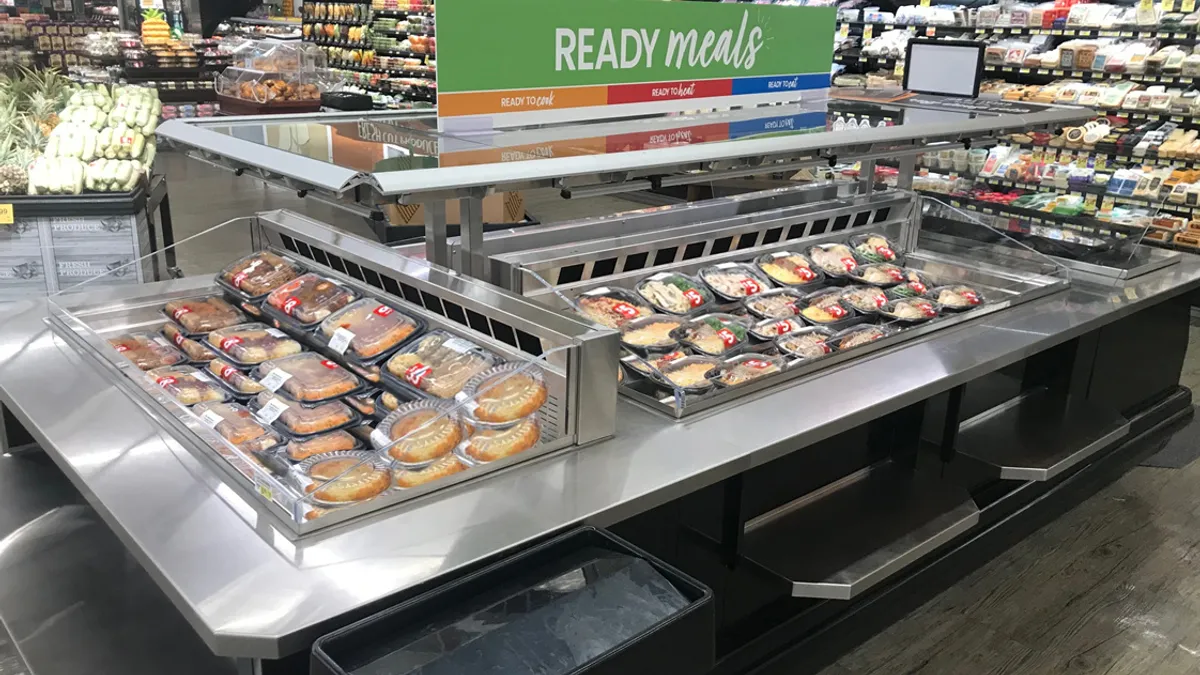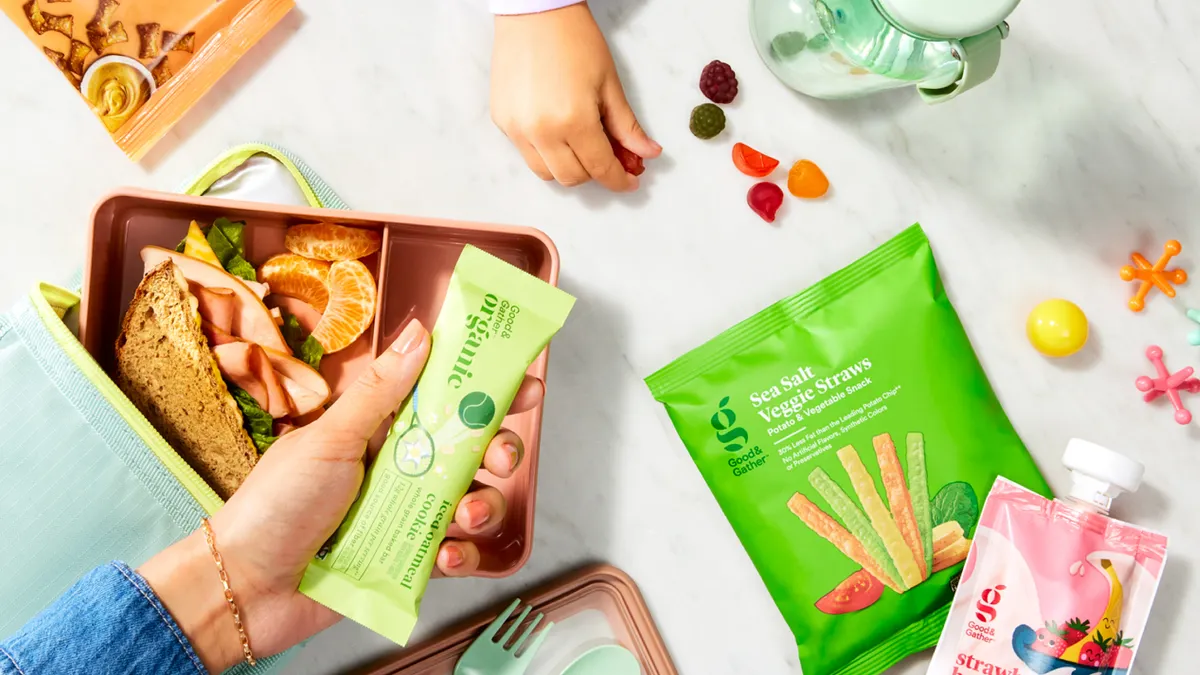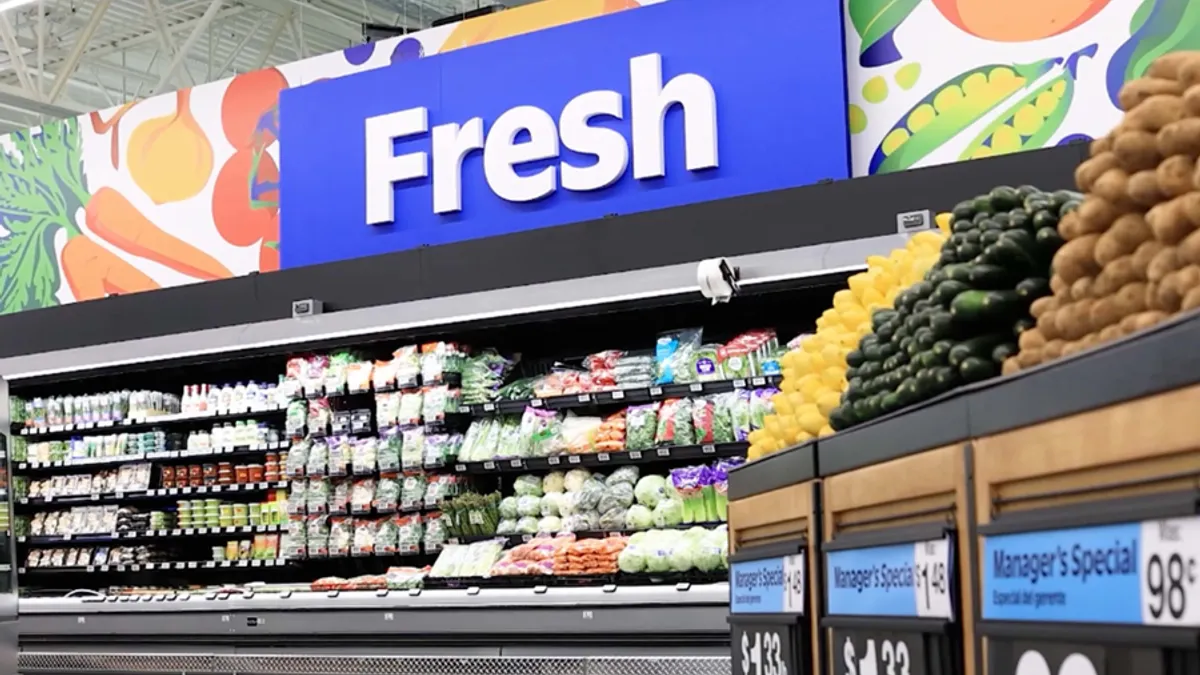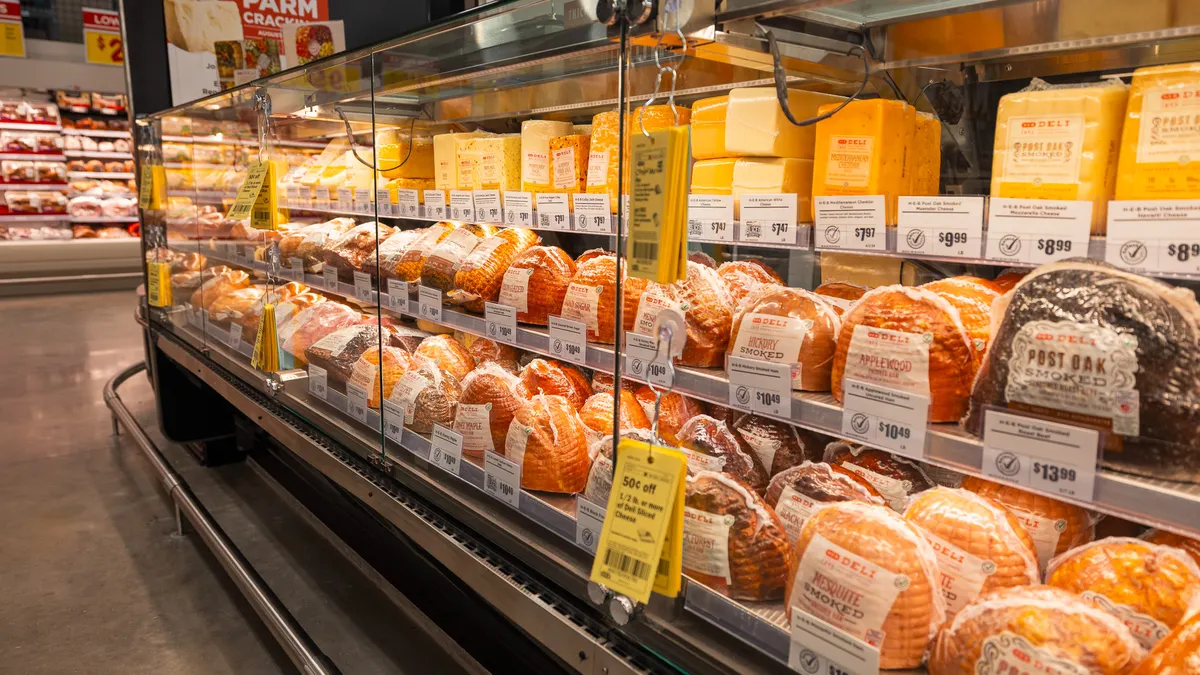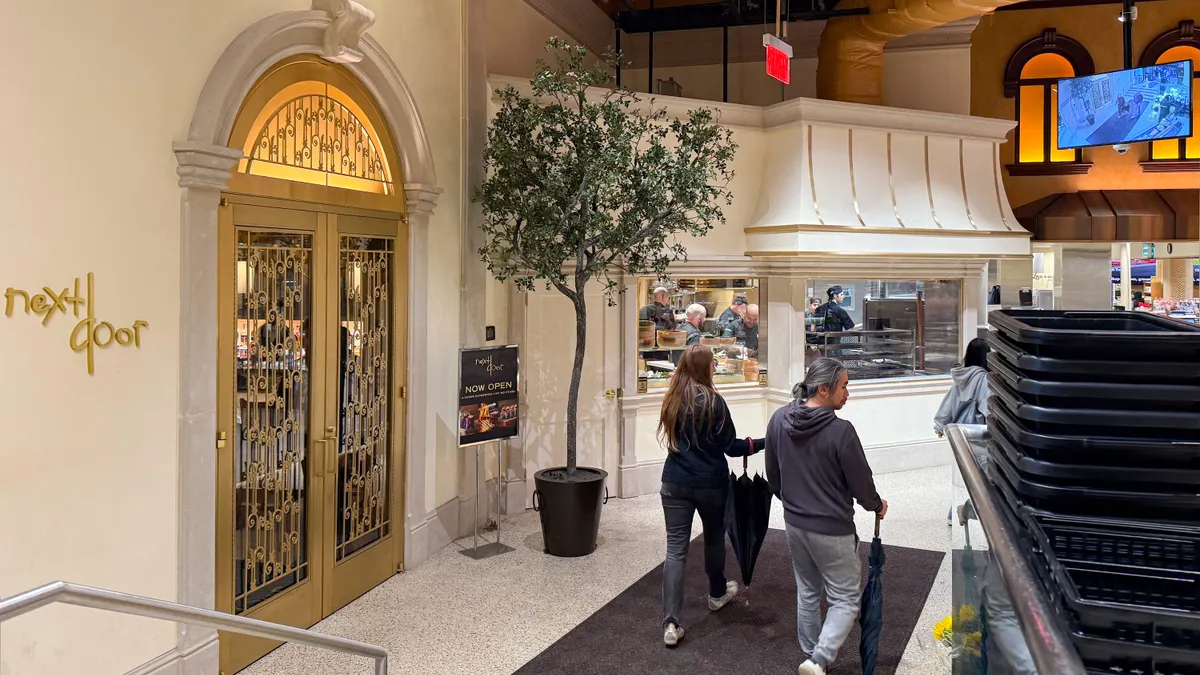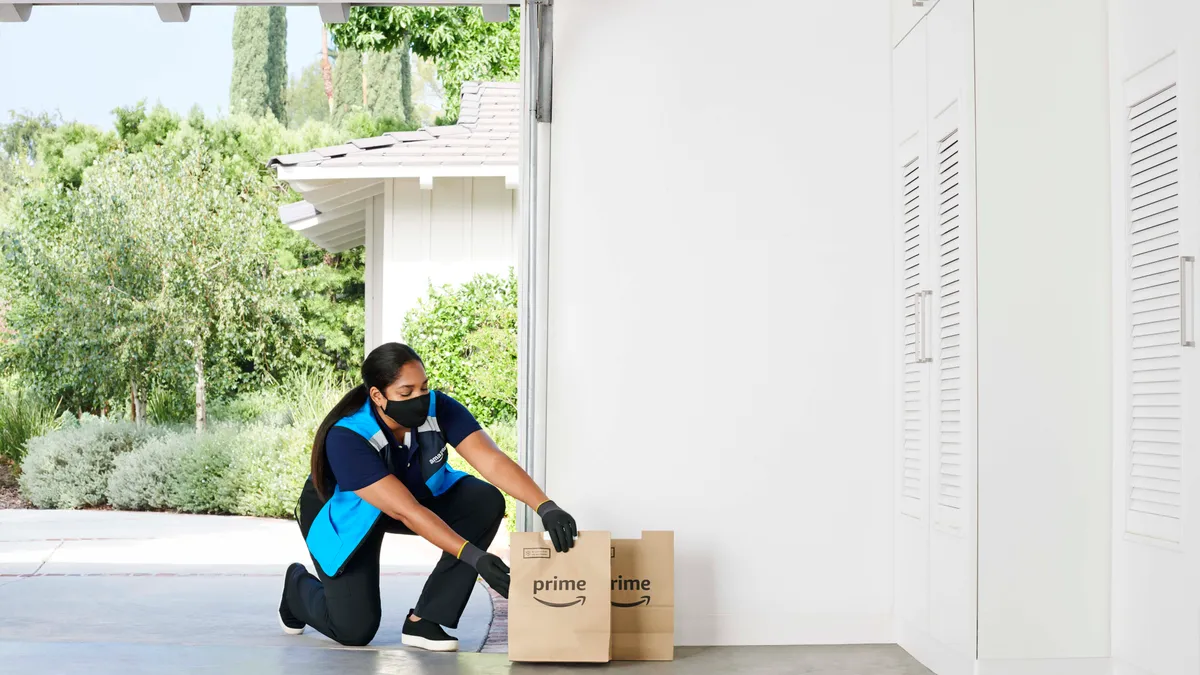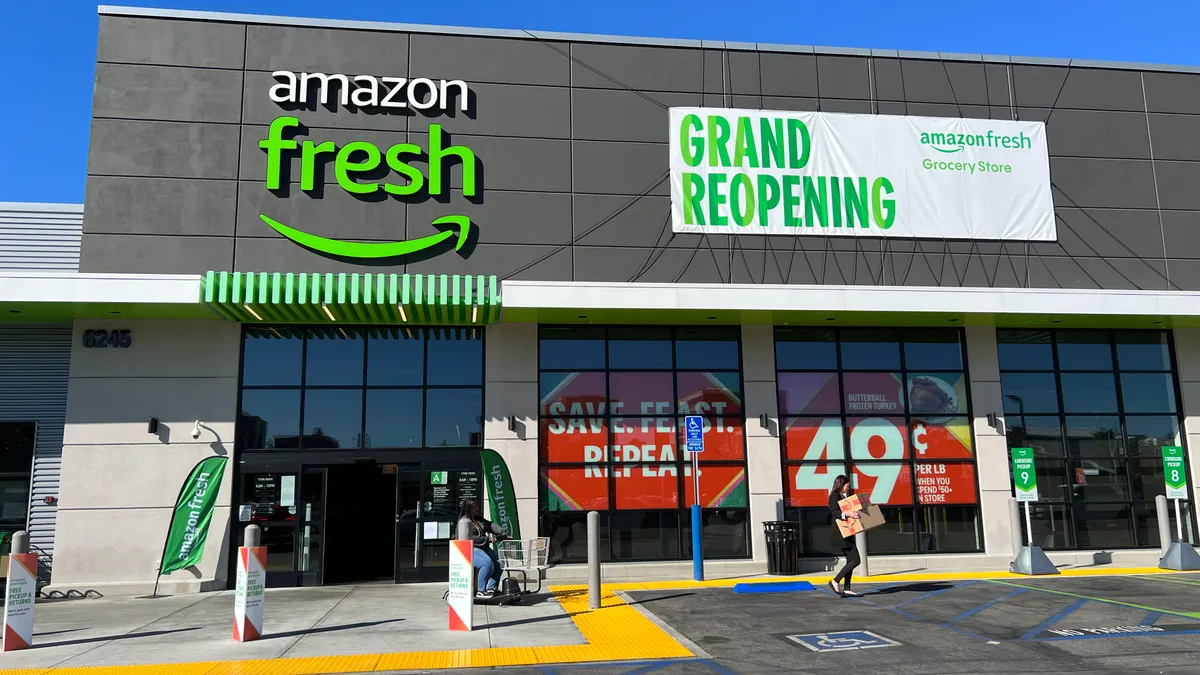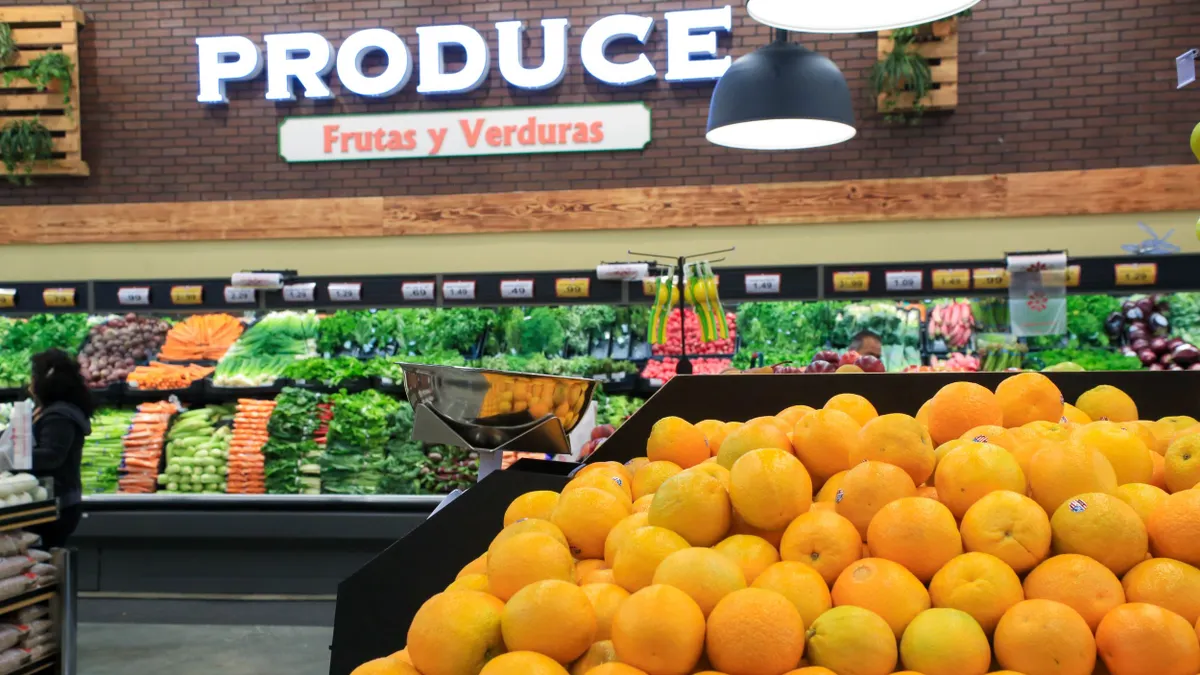Nearly a year into the pandemic, the self-service prepared food stations that long played a central role in drawing customers to grocery stores remain largely shut down or significantly altered to accommodate safety protocols — a highly visible reminder of how profoundly an unseen contagion has rewritten the rules of retail.
But even as the rollout of COVID-19 vaccines ramps up, the extent to which people will want to return to helping themselves to salad and other items in grocery stores remains far from certain. That's prompting industry officials, retail designers and equipment suppliers to rethink the role self-service will play in stores going forward.
"I think consumers are going to have a hard time going back to the way salad bars are perceived to be … there's a mental barrier there that I'm not sure we're going to get past," said Robyn Novak, vice president and retail practice leader at Nelson Worldwide, an interior design, brand strategy and architecture firm that has worked with retailers including Kroger, Target and Whole Foods. "But at the same time, what a great opportunity for a brand to think about how do you create the theater that they create now in the bakery, in the cheese shop, in the deli, in the sushi counters."
Hot bars and salad bars at many grocery stores have safety measures in place like one-way lanes and regularly sanitized utensils. The result is a significantly altered experience compared to pre-pandemic times.
Other retailers have opted to load up these stations with pre-packed items. That shift has helped grocers craft new ways of making eating at home easier and more enjoyable, according to Anne-Marie Roerink, president of 210 Analytics, a research firm that specializes in the food-retailing industry.
Pre-packaged foods to the rescue
In fact, the embrace of pre-packaged prepared items by retailers and consumers alike has helped sales of prepared items stage a dramatic recovery from the nearly 30% year-over-year sales drop they posted in the early weeks of the pandemic, Roerink wrote in an email.
"One big lesson in pre-packaged sales has been the need for a variety of portion sizes to accommodate for the different household sizes, budgets, etc.," Roerink said. "This is directly due to consumers looking for a little help in the kitchen these days, mixing and matching items cooked from scratch with items that they just need to heat-and-serve. Retailers have a real opportunity to better integrate some of the deli pre-packaged sides in the meat case to make the connection for the shopper."
Packaged items are helping grocers add life back to their prepared food departments. Pre-pandemic, retailers averaged 180 selections in their prepared food departments, Roerink said. That number dipped to 158 in May as companies focused on top performers, but climbed to 167 in December, she said.
While they remain focused on offering convenience in the near term, retailers say they're also thinking of ways to refashion stations like the salad bar, where sales have been declining for years and which are costly to operate.
"As we build new stores, that's definitely going to be in our minds as we create these foodservice areas," said Paul Kneeland, vice president of fresh operations for Gelson's Markets, an upscale chain that operates 27 supermarkets in Southern California. "Maybe we don't need that big of a salad bar anymore. Maybe it's half the size, where we would expand on pre-pack. Or maybe we do things behind the glass that would satisfy [the] customer's needs, although it's not the same."
Kneeland also envisions combination bars that feature salad on one side and hot items on the other as a way to develop more space-efficient self-service sections.
Gelson's has not yet determined if it will reduce the amount of space set aside for self-service in its current locations counters, largely because of the substantial costs associated with removing or relocating equipment. But the company will likely begin making those decisions within the next few months, Kneeland said.
“We believe at some point in time there will be relevant solutions that customers want that are self service, and customizable, like a salad bar used to be, but it might not be the old salad bar.”
Chris Foltz
Chief innovation officer, Heinen's
At Heinen's, a chain of 23 supermarkets in Illinois and Ohio, salad bars have been shut down for nearly a year, with no plans to reopen them anytime soon, said Chris Foltz, the grocer's chief innovation officer. The grocer has relied instead on a growing selection of packaged salads, which earn a higher profit margin because they're less costly to produce and maintain.
Heinen's isn't giving up on salad bars entirely. The company plans to pilot a salad bar with half the normal range of ingredients at one of its Ohio stores, Foltz said, and may try out new types of fresh-food bars in the future.
"I could envision a protein salad bar, chicken salads, turkey salads, steak salads, that typically grocers don't have a very good selection of but customers want," he said.
Foltz emphasized that consumers are still attracted to the concept of self-service in grocery stores, but said Heinen's and other retailers need to explore new approaches.
"We believe at some point in time there will be relevant solutions that customers want that are self-service, and customizable, like a salad bar used to be, but it might not be the old salad bar," he said.
Albertsons, meanwhile, has been replacing salad bars in its stores with refrigerated stations to hold the ready-to-prepare meals that have emerged as key growth drivers for the chain, Vivek Sankaran, the company's president and CEO, said in January during an earnings call.
Equipment suppliers offer innovations and ideas
Acknowledging the shifting landscape in foodservice, equipment companies are modifying stations to provide increased flexibility.
Hussman, which supplies food retailers with salad bars, refrigerated cases and other units to store and display food, has developed a kit that can be used to retrofit salad bars so they can display products in tiers instead of on a flat surface, said Francie Dannemiller Jenks, a business development manager for the company. New salad bars Hussmann sells come with the extra hardware built in.
Hussmann is also working with retailers to install doors on refrigerated units that house bagged salad ingredients and other items that used to be out in the open.
"It should be a huge thing, especially if we're going to be going to pre-packaged, because putting something behind a door actually should make the lifespan longer because that product is sitting inside an [enclosed] refrigerator," said Ryan Petrick, another Hussmann business development manager.
Jack Sjogren, a design center specialist for refrigeration and display case supplier Hillphoenix, said the company has modified equipment in response to the shift away from self-service. It has made food bars convertible and developed merchandising ideas to help its customers display pre-packaged items more effectively, he wrote in an email.
Will customers return to salad bars?
Beyond the uncertainty over whether people will want to purchase food from self-service stations after the pandemic subsides, there are questions about whether many of the mealtime shoppers that have supported prepared food operations will return to stores they used to visit at all, said Roerink.
"We see many more people working from home, away from city centers, and we see people leaving big urban centers in droves," Roerink said. "That begs the question whether that lunch and dinner traffic will make a comeback post-virus, which is a separate question from whether people will be ready to re-engage."
In response, grocers have added more prepared foods and new meal services to their online menus. ShopRite, for one, is testing a new department that offers fresh meals for delivery through DoorDash as well as its own shopping platform.
Whether grocers eventually return their salad bars and other self-service stations to pre-pandemic operations depends on how consumers' mindsets have shifted — something that remains unclear, said John MacDonald, director of meal solutions and marketing operations for The Giant Company.
The retailer, which recently unveiled a meal solution that allows customers to purchase a range of prepared foods arranged in a single box, is for now concentrating more on meeting present customer needs than on trying to bring back services that were popular in the past, MacDonald said.
"What we're trying to do ... is change our focus to saying, 'what is the problem I'm solving' first, before 'what are the constrictions that I have as a retailer?'" he explained. "If the solution to that problem involves a service element, then that's what we’ll go after. If the solution for that problem involves a self-serve element, and we’re in a culture where self-serve is still relevant, then that probably will be something we consider."
Jeff Wells contributed reporting to this story.



